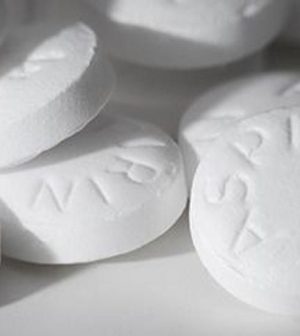- Could Artificial Sweeteners Be Aging the Brain Faster?
- Techniques for Soothing Your Nervous System
- Does the Water in Your House Smell Funny? Here’s Why
- Can a Daily Dose of Apple Cider Vinegar Actually Aid Weight Loss?
- 6 Health Beverages That Can Actually Spike Your Blood Sugar
- Treatment Options for Social Anxiety Disorder
- Understanding the Connection Between Anxiety and Depression
- How Daily Prunes Can Influence Cholesterol and Inflammation
- When to Take B12 for Better Absorption and Energy
- Epsom Salts: Health Benefits and Uses
Could Aspirin Cut Death Risk for Hospitalized COVID Patients?

Something as simple as aspirin may help lower the risk of death in hospital patients who are fighting a tough case of COVID-19, a new study found.
George Washington University researchers analyzed data on more than 112,000 patients hospitalized with moderate COVID-19 at 64 health systems in the United States from Jan. 1, 2020, through Sept. 10, 2021.
Compared to patients who weren’t given aspirin, those who received aspirin within the first day of hospitalization had a 1.6% lower risk of death, and also had a lower risk of blood clots.
Elderly patients and those with other health conditions appeared to especially benefit from early aspirin therapy, according to the study, published March 24 in the journal JAMA Network Open.
“This is our third study and the culmination of 15 months of work looking at aspirin use in hospitalized COVID-19 patients,” said lead researcher Dr. Jonathan Chow, an associate professor at the university’s School of Medicine.
“We continue to find that aspirin use is associated with improved outcomes and lower rates of death in hospitalized patients,” Chow said in a university news release. “What’s more, it’s low-cost and readily available, which is important in parts of the world where more expensive therapeutics might not be as accessible.”
The team’s first study was published in April 2021, while the second was published in November 2021.
“This research is vital to providing physicians and patients effective and accessible COVID-19 treatments to help reduce in-hospital mortality rates and help people recover from this potentially devastating disease,” said co-author Keith Crandall, director of the university’s Computational Biology Institute.
More information
For more on COVID-19, see the U.S. Centers for Disease Control and Prevention.
George Washington University, news release, March 24, 2022
Source: HealthDay
Copyright © 2026 HealthDay. All rights reserved.










